Shuffle off to Baltimore
It all started in a little 50,000 circulation newspaper in Waco, Texas . . .
Last week, I had the honor of being named a Mystery Writers of America Grand Master. Allotted 5 minutes to talk, I timed myself over and over again to make sure I was under that limit.1 Here’s an annotated version of my remarks.
“This is a night of winners — and winners. I’ll come back to this, but I don’t think I’m up here because I won an Edgar once, but the fact that I lost six times — that probably counted for something.2
Acknowledgements usually go at the end, but I think the roll call of people who helped and sustained me over the last 30 years is important to shout out first.
I’ll begin with Michele Slung, who offered to read my first novel and recommended me to literary agent Vicky Bijur, who sold my first two books to Carrie Feron, who ultimately brought me to HarperCollins, where I remain to this day, working with a stellar crew of people –Liate Stehlke, Danielle Dietrich and Sharyn Rosenblum.3 Gratitude also to Michael Morrison and Lisa Gallagher, who invested much time and energy in my career when HarperCollins acquired the Hearst Book Group.
I am grateful to the foreign agents and foreign publishers, Hollywood agents and Hollywood producers. The booksellers – so many booksellers! — but especially the late Paige Rose and Kathy Harig of Mystery Loves Company. The ex-husbands — only two! — each supportive in his own way. I owe my career to more friends than I could ever name, but I’ll reference an emblematic few from across my various group chats – Alafair, Alison, Greg, Kellye, Megan4, Sarah, Sujata, Wendy — go Table 20! — and everyone in the so-called Teabud chat, which happens to include [MWA executive director] Margery Flax.
Todd Bauer has never read a single word I’ve written, but he lets me work out plot problems between sets of Romanian deadlifts, which is very helpful. If I’ve shown up on time in the right place – Molli Simonsen gets the credit. I was lucky to be born into a bookish family – my late writer dad, my late librarian mom, and my bookseller sister all helped me become a reader, which is, after all, how you become a writer.
Finally, I cannot imagine life without my daughter Georgia Rae Simon, who gives me a reason to get up every morning.
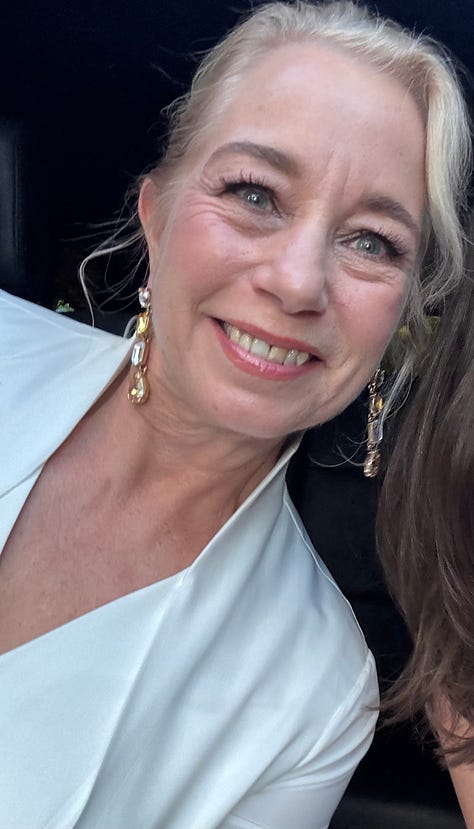
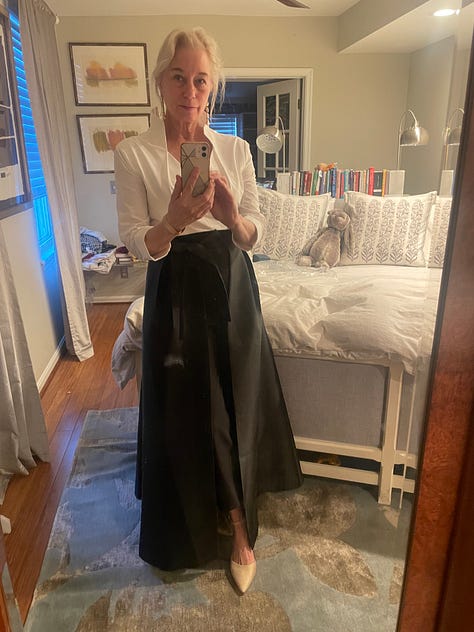
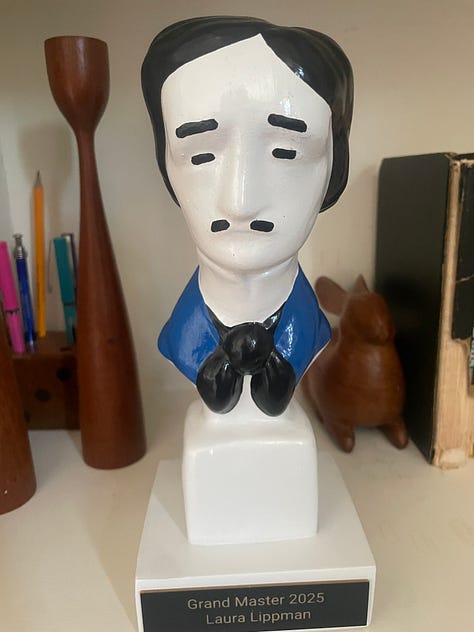
The thing I love about our genre is that our best writers believe that every death matters. I went to a summer camp that took the John Donne line “No man is an island” as its theme song, and those words imprinted themselves on my teenage brain. Any man’s death diminishes me because I am involved in mankind.
When Columbine happened in 19995, I assumed the shooting would be an anomaly. Now there have been so many mass shootings in the United States that we can’t keep track of them or even order them chronologically. Did Sandy Hook come before or after Las Vegas? When was Uvalde? I can remember the month that Parkland happened, but not the year. If you Google “mass shootings in the United States,” you may get a result that confidently asserts the first was in New Jersey in 1949.6 Yet I stand before you as a descendant of Rexford Napoleon Deaver, a rookie police officer killed in Brunswick, Georgia, in 1915, when an angry man with a shotgun killed five people and wounded 32 in a 10-minute rampage before he himself was killed. Just seven years ago, I lost a dear friend, Rob Hiaasen, to a shooting at the Annapolis newspaper where four of his co-workers also were slain.7
I mention these events not to score a political point, but because I believe that in a world with so much chaos, violence, disorder, and, yes, evil, the crime novel offers us an escape, but not in the way we normally think of escapism. The crime novel requires a moral universe where people die for a reason – and other people care about that death, cannot rest until they understand it and achieve some kind of justice for the dead. The crime novel is, perhaps counterintuitively, one of our most hopeful entertainments because it hews to this idea that every death matters.
For years I wrestled with Raymond Chandler’s observation that “In everything that can be called art there is a quality of redemption.” I’ve always been skeptical of redemption, conflating it with art that centers the protagonist to the point where we almost forget that a crime has even happened. I see now that the redemption in crime fiction is as much for the reader – and the writer – as it is for the main character. The best crime fiction reminds us that the worst thing can happen to anyone at any time -- and then demands to know what we’re going to do with that information.
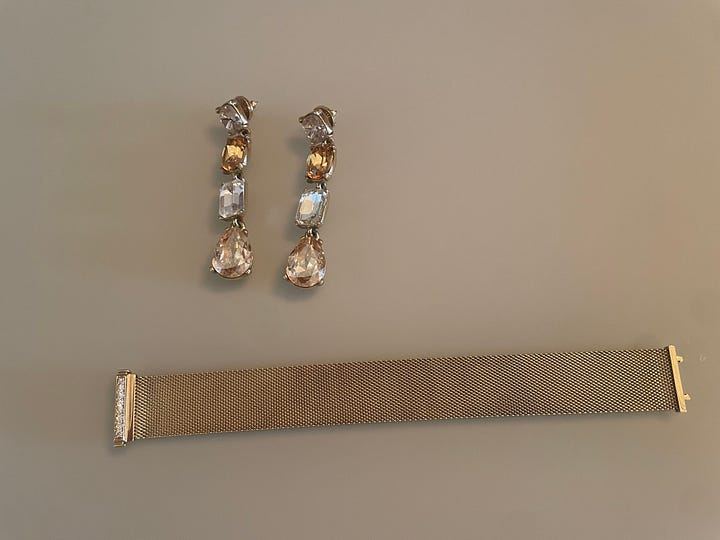

I am extremely proud to be part of this genre and I am over the moon to be named a Grand Master, although I can’t help thinking about what Lorne Michaels said about such honors: “One way the cultural industrial complex traditionally helps shuffle aging worthies offstage is by giving them lifetime achievement awards.” OK, fine, memo received. But I’m not going to shuffle. I’m going to do what every winner AND every nominee here tonight should do: I’m going to strut.8
Thank you.”
Read/reading: Zeal, Morgan Jerkins: The Fourth Girl, Wendy Corsi Staub; Rental House, Weike Wang; The Secret Hours, Mick Herron (audio); Lorne: The Man Who Invented Saturday Night Live: Susan Morrison (audio).
Reread: Betsy and the Great World, Maud Hart Lovelace. Cadillac Jack, Larry McMurtry.
Me, me, me: Oh there’s been quite enough of that. But may I interest you in a preorder?
(A gift from my publisher to celebrate the Grand Master award: a leather-bound copy of my first novel, a paperback original that retailed for $5.99.)
ALWAYS GO UNDER THE LIMIT.
I actually cut this opening paragraph, for time and because I didn’t think it worked. Too self-centered, too much of a humblebrag.
I think I added Jen Hart and Kaitlin Harri to this list, but there was no way I would ever come close to mentioning all the people at HarperCollins who have been so crucial to my career.
Megan Abbott also introduced me and — Wayne’s World voice — I was not worthy.
One thing I didn’t make clear is that my career has basically happened against the backdrop of the United States’ mass-shooting era (ongoing).
In an earlier draft, I had a line that said something like: “And it’s not even AI’s fault!” I am distressed that the Edgar banquet featured AI created videos and images. As one of the plaintiffs in a lawsuit challenging LLMs that were trained on my work without my permission, I felt somewhat compromised by this. On climate issues alone, AI should be avoided at all costs.
Line cut from final draft: “I believe we are hurtling toward a time in which almost every American will have one degree of separation from a mass shooting. One Parkland survivor just survived the shooting at Florida State University.”
My friend Alison Gaylin recognized the fact that, yes, I ended by quoting the last line of Staying Alive. As one does.





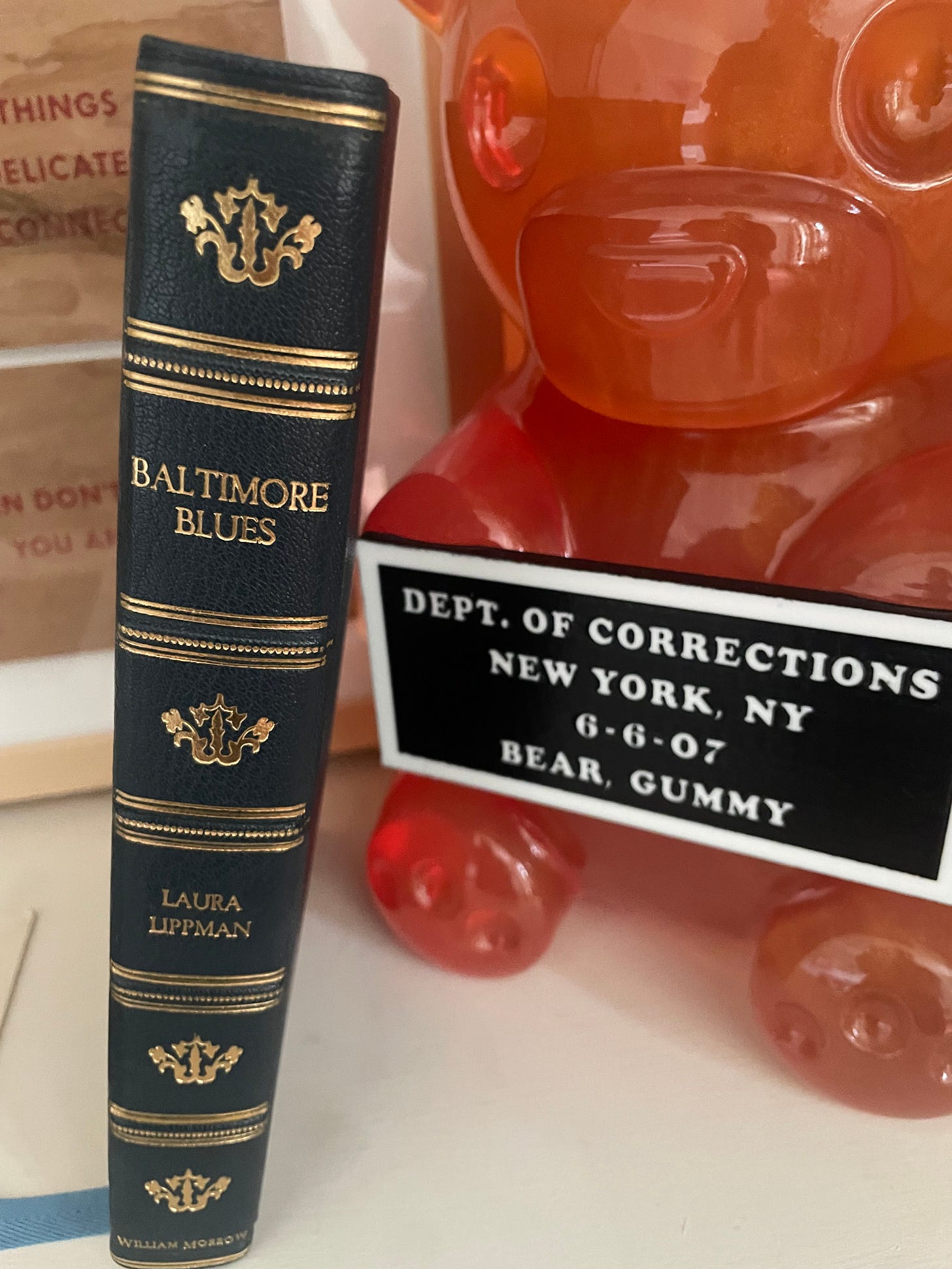
So many millions of congrats on this much-deserved honor. I still have my very battered p-back Baltimore Blues, which I purchased at the CVS--back when it carried books-- up the st from my home & which I read in a single night sitting up with my ailing cat the late great Cassie. The mention of Paige Rose made me weep, such a bright light who somehow made you thrilled to buy more books than you'd planned, always loved her appearance in "In A Strange City" when Tess is on Poe's trail.
"The crime novel requires a moral universe where people die for a reason"--I love this and your reflections in general. Also, you won the fashion Edgar.❤️❤️